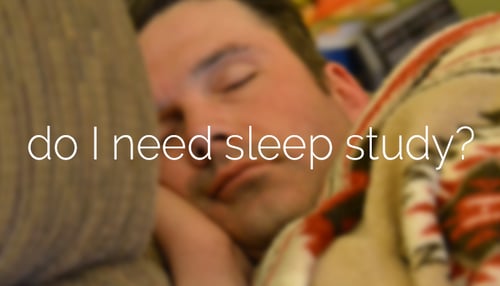What is Narcolepsy?
Narcolepsy is a sleep disorder characterized by a frequent and sometimes uncontrollable desire for sleep. This can result in sudden lapses of sleep at any time, in any place. This results in abnormal sleep patterns and rhythms. For example, someone suffering from narcolepsy may end up sleeping several times during the day and then having trouble sleeping at night. Irregular sleeping patterns are not only inconvenient, they can have medical, emotional, and psychological consequences. Continue reading to learn more about narcolepsy to assess if you may be experiencing any of these symptoms.
Cataplexy and the Two Types of Narcolepsy
There are two types of Narcolepsy, Type 1 and Type 2. The difference between both types of narcolepsy is whether or not Cataplexy is present with the Narcolepsy.
Cataplexy is an episode in which strong emotion causes a sudden loss of muscle tone, which is what keeps our bodies upright. Cataplexy can result in a full-body collapse or something less severe like a slack jaw.
Type 1 Narcolepsy includes the presence of Cataplexy. Type 2 Narcolepsy does not include Cataplexy. Around 75% of Narcoleptics have Type 1.
Symptoms of Narcolepsy
The symptoms of Narcolepsy include:
- Sleep attacks
- Excessive daytime sleepiness
- Cataplexy
- Sleep paralysis, which is a temporary inability to move or sleep after waking
- Hallucinations, which are temporary, vivid, dream-like visions or delusions
- Disrupted nighttime sleep

If the symptoms sound familiar and are interfering with your normal life, you should look into getting a sleep study
Who Is Affected by Narcolepsy?
Fortunately, narcolepsy does not affect many people – it is relatively rare. Only about 1 in every 2000 people. Narcolepsy symptoms generally begin to appear in people between the ages of 10-30 years old.
From the time symptoms begin, the average time to diagnosis is about 7 years, though it is estimated that only 25% of people with narcolepsy have received a formal diagnosis.
What Causes Narcolepsy
Narcolepsy is caused by the loss of a brain chemical called hypocretins. These chemicals are neurotransmitters that are involved in the regulation of the sleep-wake cycle. Without their presence, the body is unable to adequately regulate sleep.
While it is not understood exactly what causes the loss of hypocretins, current research points to a combination of genetic and environmental factors as causes. Researchers have also identified a gene that is linked to narcolepsy, which about one-quarter of the U.S. population carries.
Risks of Narcolepsy
Because of the symptoms of Narcolepsy, there are certain safety dangers associated with this sleep disorder, such as driving accidents. Additionally, the sleep deprivation that can result from Narcolepsy include:
- Lower life expectancy
- Sleep deprivation linked to heart disease and stroke [source]
- Decreased immune function (in one study, people who received less than 7 hours of sleep were three times more likely to develop a cold than those with 8 hours or more of sleep)
- Strong link of sleep deprivation to weight gain
- Lower glucose metabolism and Type 2 diabetes risk [source]
- Link to increased inflammation [source] (those of you with IBS or other bowel disorders may have already noticed a relationship between your gut and your sleep)
Treatment Options for Narcolepsy
Narcolepsy diagnoses require a sleep study. Fortunately, this sleep disorder can be treated with medications and lifestyle adjustments.
If this article strikes a little too close to home – such as the symptoms – then please contact us for further discussion and start by taking this free online sleep test:


